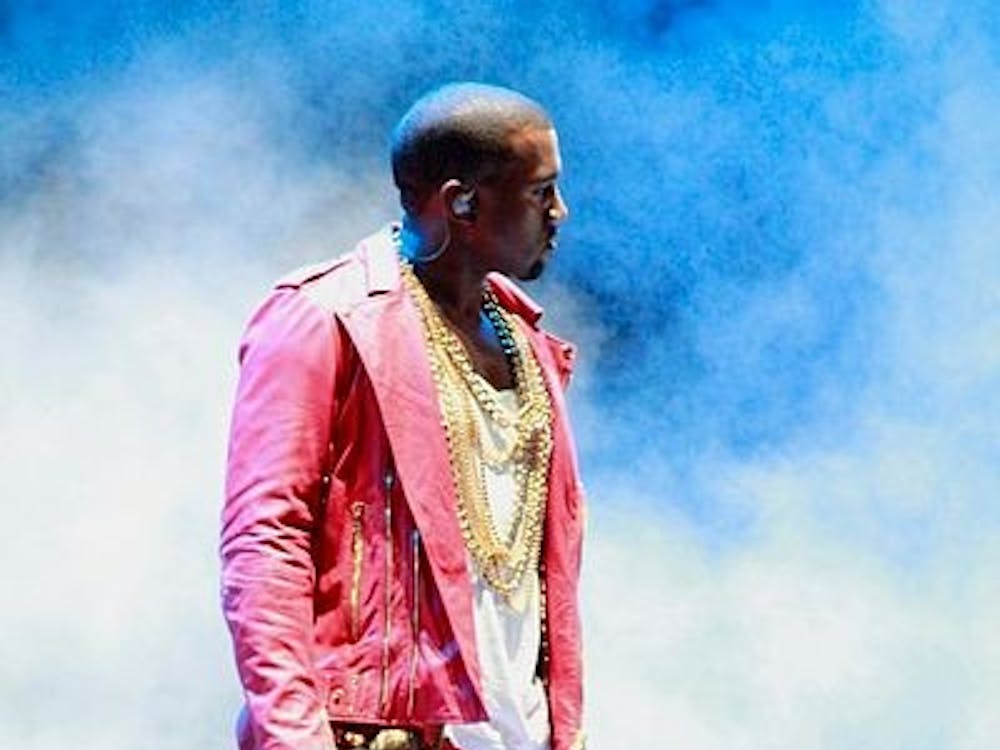The Honor Committee is considering a mandatory casual Fridays policy — a move which would go against the Committee’s long-standing code of formality. The controversial measure, introduced to the public for the first time Sunday after private deliberation, would require all committee members to wear jeans and sneakers every Friday. Pastels will be prohibited.
Vice Chair for Education Joseph Martin, a fourth-year Commerce student and leader of the proposal, said the committee is still ironing out the details of the potential bylaw change. Although the main points have been outlined, he said the final logistics and span of the proposed system are still up in the air.
“We have a ways to go,” Martin said. “We’re still exploring what our policy will be concerning specific brands and what our reaction will be to specific types of clothing. The discussion surrounding socks is still ongoing.”
The seasonal nature of the region has added complications, forcing the group to come up with plans as the weather changes. Martin said he chose to introduce the measure before everything was finalized because he wanted to gauge the Committee’s opinion ahead of a vote.
“Part of why we introduced the measure was to determine how polarized the reaction would be,” Martin said. “We hoped to see how extreme the variety of responses would be and to get some feedback on a few specifics of the plan.”
Polarized and extreme it was — while Engineering representatives seemed generally in favor, the McIntire and Darden camps were deeply split. Halfway through Martin’s proposal, McIntire representative Brendan Evans jumped on the table and lunged at Martin with one of his Sperrys and had to be subdued with Committee Chair Nicholas Hine’s Bean Boot.
Other committee members took advantage of the interruption to voice their own concerns. Law representative Charles Gamper said he had doubts as to how the Honor Committee would retain a position of leadership following the casual Fridays change.
“I’m concerned as to how people would react to leaders who wear jeans,” Gamper said. “I’m afraid we would become associated with the poor leadership of President Obama, himself a frequenter of jeans.”
“Thanks Obama,” he added.
Many within the University community expressed similar concerns with the potential change, fearing the wider effects of instituting casual Fridays.
Joe Moyenne, a third-year College student, said he was genuinely concerned about the impacts and laid-back modifications on his and others’ behavior.
“If Nick Hine is wearing jeans and sneakers, what standards am I supposed to be held to?” Moyenne asked. “Jeggings?!”
Pat Lampkin, University vice president and chief student affairs officer, voiced similar concerns, saying that although such a change may be a good topic for discussion — and maybe even seriously considered at some future time — now is not that time.
“Although I think this deserves genuine discussion within the University community, I don’t think now is the right time given the turbulent two semesters we’ve had,” Lampkin said. “Four student deaths, two media scandals and Honor casual Fridays — that’s not how I want this academic year to be remembered.”
The policy has even prompted a reaction from L.L. Bean, which had considered sponsoring the Committee, given what they called unprecedented media attention at the University.
“We’re not pleased,” the company said in a press release.
This proposal comes amid attempts to change much of the language used by the Honor Committee, which fears its lingo is too condescending. Bolstering this effort was the Committee’s recent addition of a new Executive Committee position, the vice chair for normalcy.
“‘Normalcy,’ not “normality,’” Hine said. “‘Normality’ is not a word. There’s been some confusion.”
Others, however, have said the entire debate has been disillusioning. One committee member, who asked that her name not be given in order to avoid passive-aggressive glares from her colleagues, said the influence that bureaucracy was having on the Committee was disheartening.
“You might ask sarcastically, ‘Is it really possible to talk about socks for three hours,’” she said. “But the answer is yes. It’s ‘yes.’”
Vice Chair for Investigations Henley Hopkinson, a fourth-year College student who helped plan the proposal, said there was slightly more backlash than he had expected. He said, however, that disagreements are generally conducive to constructive leadership.
“I’m glad there has been back and forth on this issue,” Hopkinson said. “Just a little bit disappointed that a few more shoes weren’t thrown.”
Regardless, he and Martin said they were pleased that they submitted the proposal when they did, and even more so that they have pursued the issue.
“We’re running out of time on the Committee, and I want to make sure that we leave as positive as a mark on the student body while we’re still able,” Martin said. “Independent of the outcome, we will still have contributed to community discussion, and resolved some of differences.”






